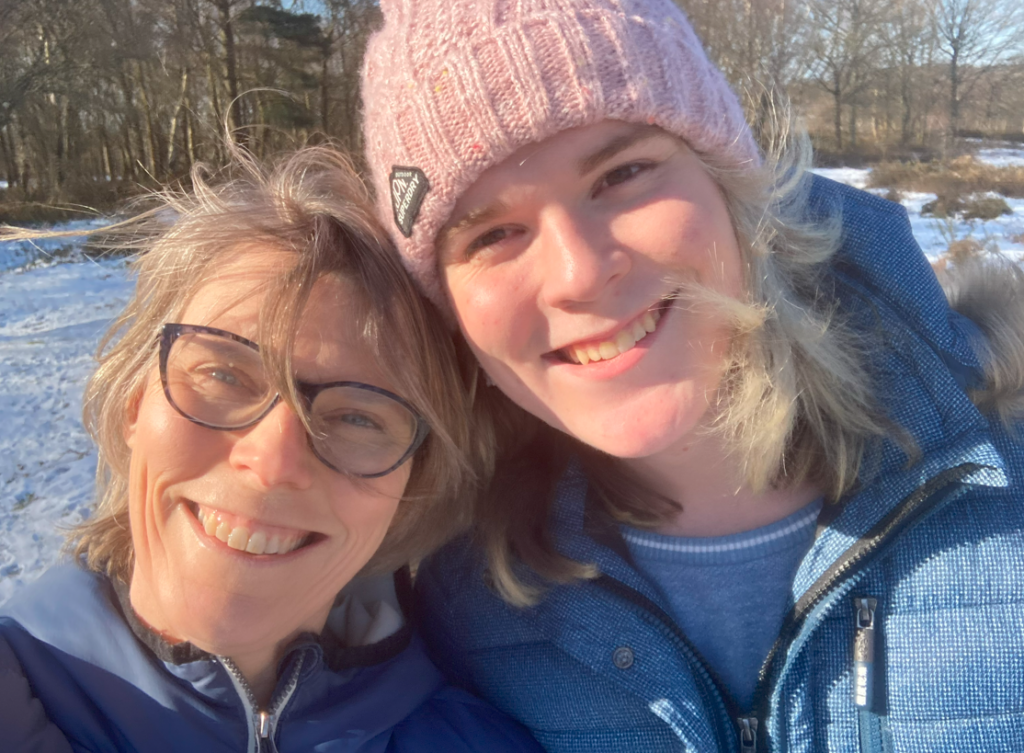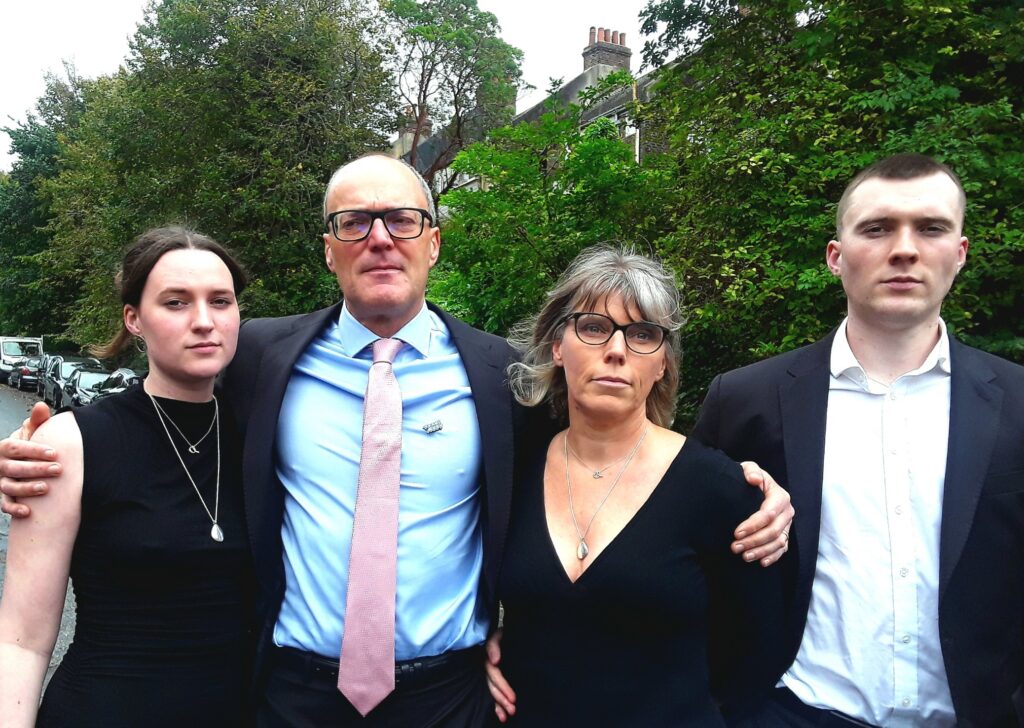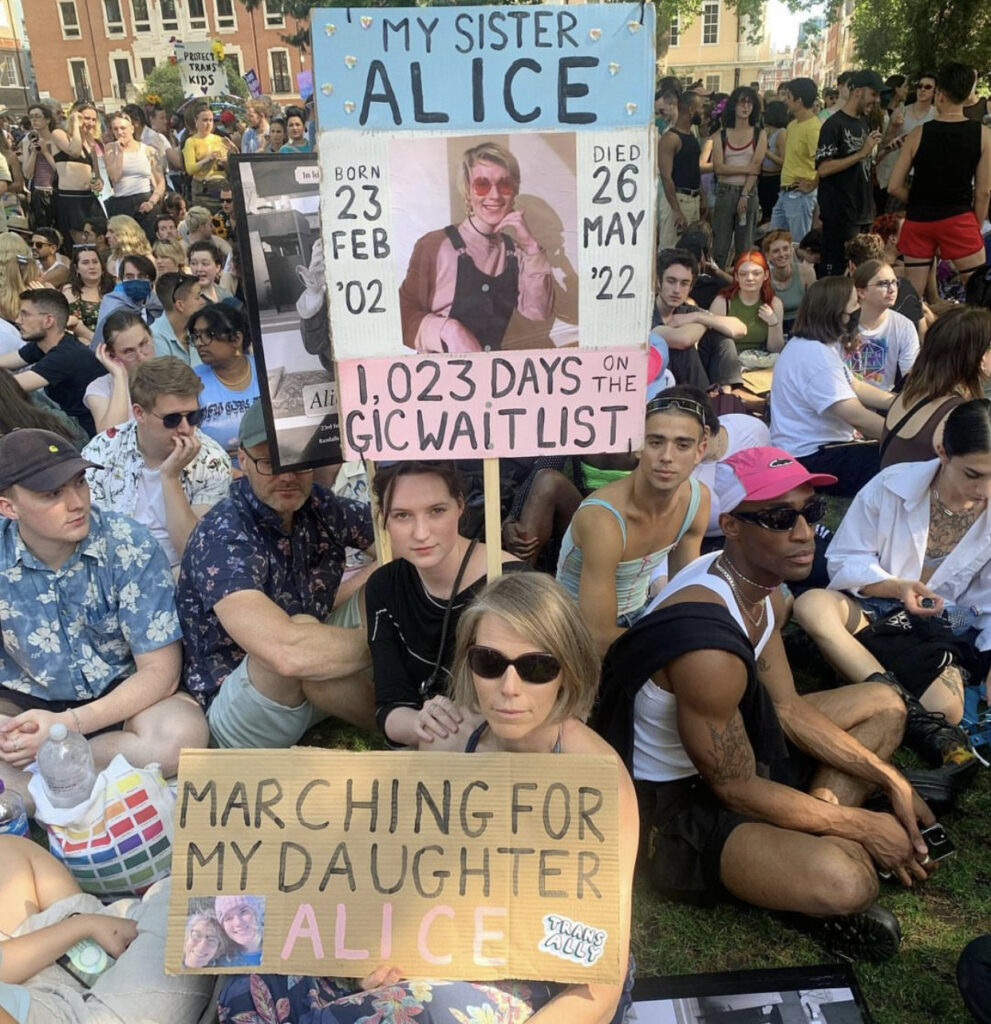A trans woman who was living in Brighton fell to her death after gaps in NHS care and long waiting times left her in despair.
Alice Litman, 20, of Albion Hill, Brighton, was found on the Undercliff Walk, at Roedean, on Thursday 26 May last year.
An inquest into her death concluded on Friday (13 October) with the coroner Sarah Clarke saying that she would be sending four organisations reports to prevent future deaths.
The coroner said: “The most commonly asked question throughout this inquest has been: ‘If not your service, then where should Alice have gone?’
“CAMHS (the child and adolescent mental health service) say adult mental health. Adult mental health were not able to offer anything specifically designed to help tackle the issues that Alice was struggling with.
“The GIC (Gender Identity Clinic) say primary care should ‘hold’ those on the waiting list and primary care say we are not trained to deal with this area of specialist care.”
The coroner said: “Alice’s ‘transition’ from children’s mental health services to adult mental health services was non-existent.
“Shortly after Alice turned 18, she was offered a ‘coping strategies’ course in a quite frankly half-hearted final offer of some kind of support.
“Miss Walker (the Litman family’s barrister Sophie Walker) politely suggested that this may have been disheartening for Alice.
“I can only imagine that it must have been absolutely devastating to be told that she was on her own until she was able to access the gender-affirming health care which was potentially years away.”
The coroner also said: “Alice took the brave and bold decision to begin her social transition in August 2019.
“Alice was not able to access hormone treatment until she did so privately through the Gender GP (online transgender clinic) and with the assistance of her family. The treatment did not begin until 2022.
“I do not consider that Alice was ‘unable’ to access hormone treatment on the NHS but I do accept that, by the time of her death, she had not been able to – and sadly was so close to her first appointment with WellBN (doctors’ surgery) here in Brighton where access to the hormone treatment would potentially have been more of a positive experience for Alice.”
Alice had filled in an e-consult form as she sought help from the doctors’ surgery, in Western Road, Hove, and was due to be seen.
She wrote: “I’ve been on the Gender Identity Clinic wait list for over two and a half years with no end in sight.
“I need an appointment. I am struggling. I am concerned that I have missed out on vital treatment. I often feel hopeless and helpless and feel life is not worth living.”
The coroner said: “I do not accept that Alice’s disclosure in the e-consult exchange with WellBN was a glaringly obvious red flag to Alice’s suicidal intent.
“I believe if anyone was going to act upon such a red flag it would have been WellBN.
“Alice was feeling ‘helpless and hopeless’ and for good reason. She was doing her utmost to navigate her way through life but constantly taking one step forward and two back in her pursuit of gender-affirming healthcare.”

The coroner heard evidence during the inquest from James Barrett, director of the Gender Identity Clinic at the Tavistock and Portman NHS Foundation Trust, in London.
She said: “In relation to the GIC, the only finding I can make – and it will come as no surprise – is that the service is underfunded.
“The demand for the service has exponentially outgrown the ability to deliver the service.
“That is not to say that the service … is not trying its utmost to provide the service that it is commissioned to deliver.
“But I agree with Dr Barrett that the service is not commissioned to deliver mental health services and if they attempted to do so, the ability to deliver gender-affirming health care would be diluted even further.”

The coroner recorded a narrative conclusion, saying: “Alice Litman, a 20-year-old trans female, was found on (Thursday) 26 May 2022 at Undercliff Walk, Roedean, Brighton, having died as a result of a descent from height.
“From her early teens it was apparent that Ms Litman had struggled with her mental health.
“At the age of 17, Ms Litman had made a previous attempt to take her own life and was for a time under the care of the child and adolescent mental health services until she was discharged at the age of 18.
“At the time she was not considered to meet the threshold for adult mental health services and Ms Litman never sought further assistance from the community mental health services.
“At the time of the death, Alice had been on the waiting list for the gender identity services for 1,023 days which contributed to a decline in her mental health.”
The Litman family had hoped that the coroner would find that article 2 of the European Convention on Human Rights – the right to life – was engaged.
If so, the coroner would be required to carry out an enhanced investigation into the circumstances surrounding Alice’s death.

The family also hoped that the coroner would issue a “regulation 28 report” to some organisations so that they might take action to prevent further deaths.
The coroner said that article 2 was not engaged in Alice’s case but added: “A properly conducted inquest is always intended to consider the broader circumstances of the death.”
She said that she did, though, have a duty to raise a report to prevent future deaths and the reports would be sent to four organisations.
Those were the Gender Identity Clinic, run by the Tavistock and Portman NHS Foundation Trust, the Surrey and Borders NHS Partnership Trust, NHS England and the Royal College of General Practitioners.
The reports were not intended to punish anyone or apportion blame or to suggest that professional disciplinary proceedings should be commenced, she said, adding: “That is not a coroner’s role.”
The coroner said: “My duty to raise a report to prevent future deaths was triggered.”
“The duty arises where a coroner has been conducting an investigation into a person’s death and anything revealed by the investigation gives rise to a concern that the circumstances creating a risk of deaths will occur or will continue to exist in the future and, in the coroner’s opinion, action should be taken to prevent the occurrence or continuation of such circumstances or eliminate or reduce the risk of death created by such circumstances.
“I take the duty to raise reports to prevent future deaths very seriously. It is important that we have a way of ensuring that we learn from deaths.”
To read more about the inquest, click on the headlines below.
Inquest due to examine death of transgender woman on NHS waiting list
Mother of transgender woman pays tribute at inquest
Brighton transgender woman’s death was preventable, says mother
Trans people let down by extraordinarily long NHS waiting lists
Trans and mental health services underfunded, says coroner
Brighton trans woman’s family speak out as inquest is adjourned








Good to read this news item and that a “Regulation 28 Report” will be sent to 4 orgs. I trust that there will be a further news item about the response to that Regulation 28 Report.